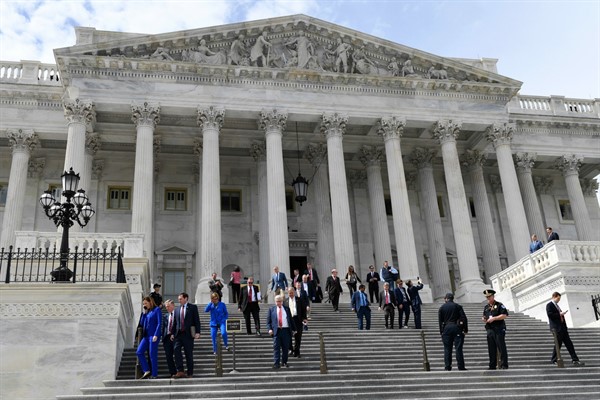The global economy is gradually healing from the economic blows dealt by the coronavirus pandemic, but the recovery remains fragile and halting. Reduced trade is more a symptom than a cause of those trends—and what governments do in terms of additional fiscal stimulus will do far more to determine the shape of the recovery in the United States and other countries. Still, trade policy could be a factor, supporting or undermining the nascent recovery.
President Donald Trump’s trade wars have already complicated the direct response to COVID-19 infections—by making imports of some critical products more expensive or harder to find—and made the road to recovery steeper. If the House of Representatives passes a bipartisan resolution currently under consideration that opposes tariff exemptions to developing countries in certain sectors, it would be another sign that the United States is moving in the wrong direction.
Generalized System of Preferences programs were adopted in most rich countries in the 1970s—and more recently in major emerging markets such as China and India—to encourage trade and support industrialization and job creation in developing countries. These so-called GSP programs allow designated imports from eligible developing countries to enter without payment of the normal tariff. Almost all of them have weaknesses, however, that undermine their effectiveness, such as exclusions in key sectors or rules of origin for determining product eligibility with which poorer countries struggle to comply.

